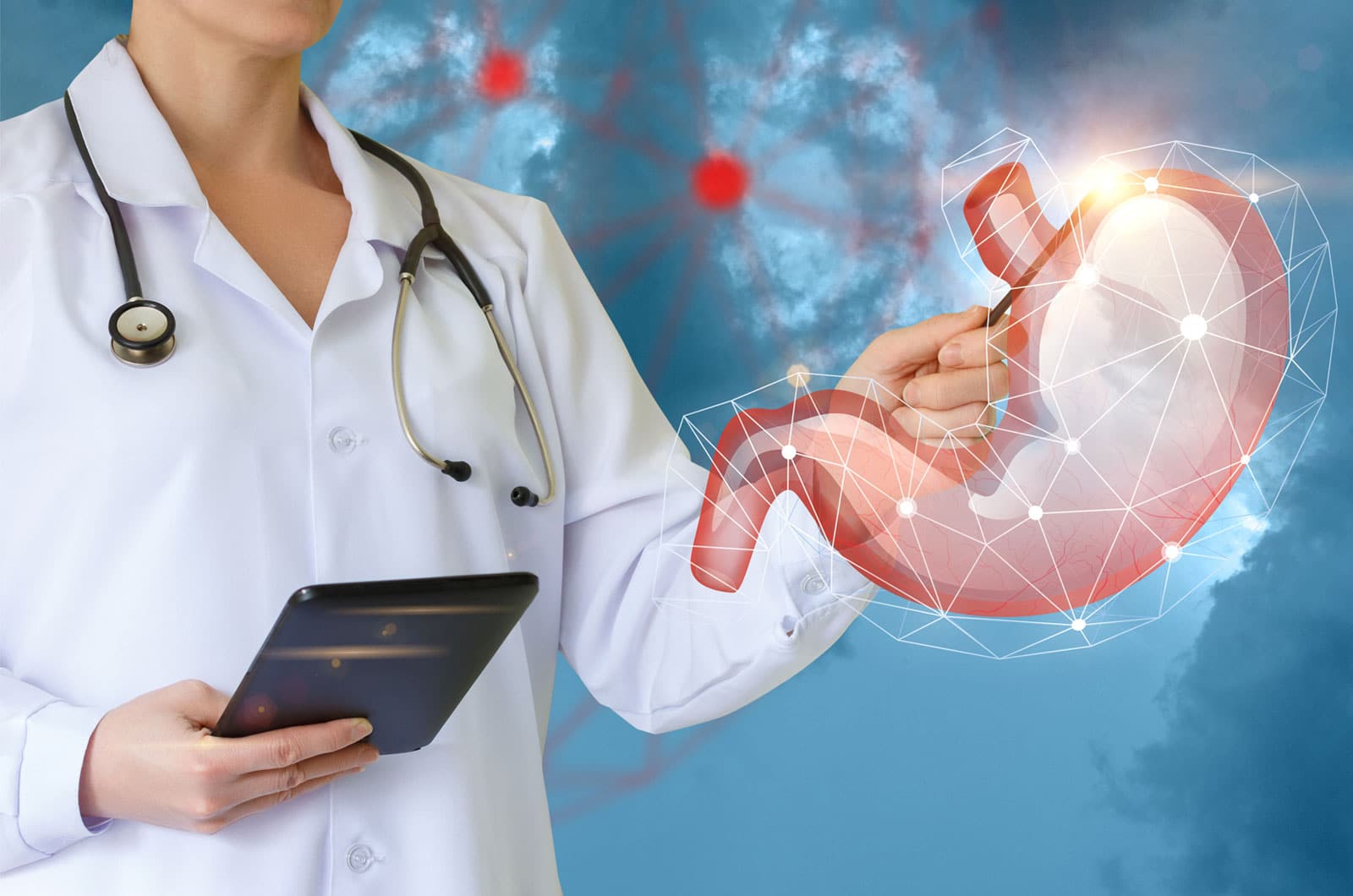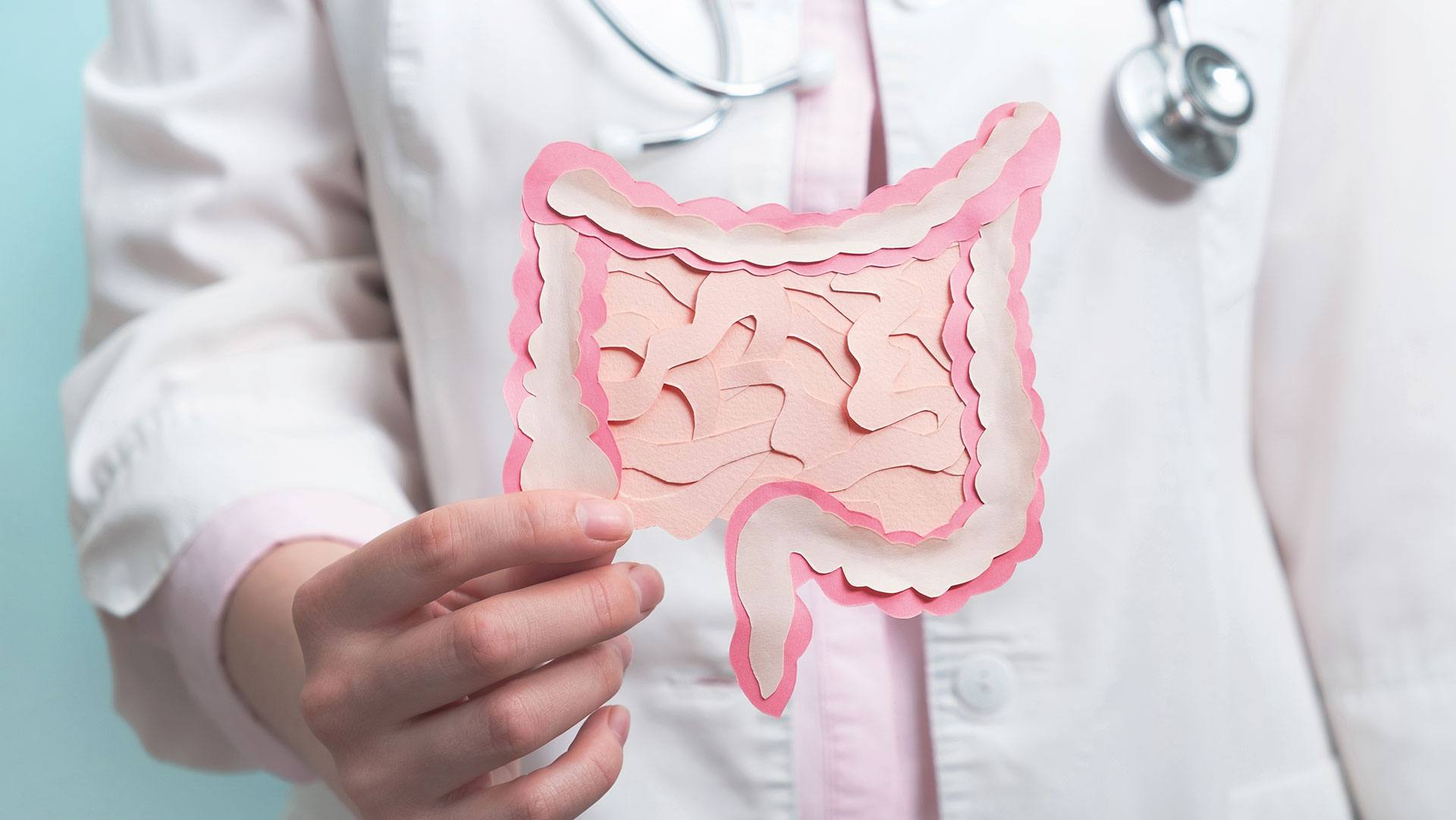Department Introduction

Our department of Gastroenterology at Hassabo International Hospital. Our dedicated staff of gastroenterologists strive to provide high quality and compassionate patient care through providing evaluation, diagnosis and treatment for all the disorders of the gastrointestinal tract including the liver, pancreas, gallbladder, esophagus, stomach, small bowel and colon. From diagnosis to treatment, prevention and rehabilitation, our staff members are committed to preserving, improving and promoting your health. We’re here to help you regain optimal gastrointestinal health.
Department Overview
What is gastroenterology?
Gastroenterology is a branch of medicine concerned with the disorders of the stomach intestine, liver, biliary system, spleen and pancreas,
Who is a gastroenterologist?
A gastroenterologist is a physician who specializes in diagnosis and treatment of patients with gastrointestinal disorders.
About Us
Specialists in the Department of Gastroenterology and Hepatology at Hassabo International Hospital have internationally accredited expertise and experience in management of digestive conditions. Our gastroenterologists work with a team of doctors specialized in many areas to determine the most appropriate management for each patient based on his/ her personal needs. You should choose HIH Department of gastroenterology, simply because we can help you, HIH’s highly trained and experienced gastroenterologists specialize in diagnosing and treating all forms of gastrointestinal diseases and disorders, from heartburn to peptic ulcers to colon cancer.
When should i see a gastroenterologist?
Your physician will refer you to gastroenterologist if you are experiencing any of the warning symptoms of GI disorders.
Know the warning signs

Symptoms checklist
- Bleeding per rectum
- Leakage/underwear stains
- Urge to have a bowel movement which is hard to control
- Diarrhea
- Pale-colored stools
- Dark urine
- Heartburn (acid reflux)
- Abdominal pain or bloating
- Excessive gas
- Esophageal pain
- Vomiting
- Loss of appetite or weight
- Lethargy
Our services
At Hassabo International Hospital, our compassionate team of specialists provides exceptional care for you whatever type of digestive disease you have. Combining the most advanced techniques and procedures, our dedicated gastroenterologists collaborate to diagnose and treat your gastrointestinal (GI) condition.
Our department provides several endoscopic procedures and clinical services, diagnostic services for ultrasound, full laboratory services, x ray and x ray special investigations are available around the clock at HIH. Other diagnostic services may also be requested during your visit, HIH is proud of its collaborations with other surrounding specialized diagnostic centers to ensure the continuity of our services and the most optimum care that our patients deserve
Investigations that may be requested

- Plain radiography of the abdomen
- Contract studies of the gastrointestinal tract
- Computed tomography of the abdomen
- Breath tests in gastroenterology
- Diagnostic and therapeutic endoscopy
- Laparoscopy
- Liver functions tesT
- Pancreatic function tests
- Small Bowen function tests
- Total parental nutrition
- Testing for GI motility disorders
Diagnostic & Therapeutic procedures

- Ambulatory motility recordings for GI motility disorders
- Anorectal function testing
- Barium enema
- Barrx: Barett’s Esophagus Ablation Therapy
- Botulinum Toxin injection
- Biliopancreatic diversion with duodenal switch
- Biofeedback
- Cholecystectomy (gallbladder removal)
- Clinical nutrition counseling
- Clinical nutrition evaluation
- Colectomy
- Colonoscopy
- Constipation evaluation
- CT scan
- Diagnostic endoscopy
- Defecography
- Endoscopic mucosal resection
- Endoscopic sleeve gastroplasty
- Endoscopic ultrasound
- Endoscopic retrograde Cholangio pancreatography (ERCP)
- Esophageal Dilation
- Esophageal manometry
- Esophagogastroduodenoscopy (EGD)
- Fecal incontinence evaluation
- Fecal occult blood test
- Flexible sigmoidoscopy
- Gastric Emptying Scintigraphy (Radiology Department)
- Hepatobiliary disease evaluation
- HIDA scan
- Hydrogen Breath Test
- Intestinal transit studies for GI motility disorders
- Intragastric balloon
- Liver biopsy
- Liver function tests
- Magnetic resonance elastography
- MRI
- Needle biopsy
- PH studies
- Provocative testing for noncardiac chest pain
- Stool DNA test
- Therapeutic endoscopy
- Ultrasound
- Upper endoscopy
- Hepatobiliary disease postoperative care
Medical and surgical services

- Bariatric surgery
- Ileoanal anastomosis (J-pouch) surgery
- Gastric bypass
- Sleeve gastrectomy
- Splenectomy
- Stent placement
- Rectal prolapse surgery
- Minimally invasive anti-reflux procedures
- Minimally invasive anti-reflux surgery
- Minimally invasive surgery
Conditions we Treat
Esophageal (Food Pipe) disorders
Hassabo International Hospital provides gastroenterologists who have a special expertise in diseases of the esophagus. The esophagus is the tube through which food and liquid pass into the stomach. On swallowing, a wave of muscular contractions sweeps down the throat (pharynx) and esophagus to propel food downward. Closed gates (sphincters) at the upper and lower end of the esophagus open briefly on swallowing to allow the food through.
Frequent symptoms of esophageal disease include difficulty in swallowing, regurgitation of food or acid, and heartburn which is burning sensation behind the breastbone, often felt after meals especially heavy meals or at night, and relieved by antacid medications.
Common disorders seen are:
- Achalasia
- Barrett’s esophagus
- Chest pain of esophageal origin
- Diaphragmatic hernia
- Diffuse esophageal spasm
- Eosinophilic esophagitis
- Esophageal cancer
- Esophageal lichen planus
- Esophageal motility disorders
- Gastroesophageal reflux disease (GERD)
- Swallowing problems
- Stricture
Gastric (Stomach) Disorders
Hassabo International Hospital provides gastroenterologists who have a unique expertise in ailments of the stomach. The stomach is conventionally regarded as a hollow muscular sac that initiates the second stage of digestion. Yet this simple view overlooks the fact that it is the most advanced endocrine organ with unique physiology, biochemistry, immunology and microbiology.
All ingested substances, including our nutrition, have to cope with this organ first, and as such, the stomach is arguably the most vital segment within the GI tract. The distinctive biological function of gastric acid secretion not only starts the digestive process but also functions as a first line of defence against food-borne microbes. Normal gastric physiology and morphology may be disturbed by Helicobacter pylori infection, the most frequent chronic bacterial infection in the world and the etiological agent for most peptic ulcers and gastric cancer.
Symptoms of digestive diseases—gastrointestinal (GI) conditions—can be very unpleasant, such as nausea, vomiting, weight loss and/or loss of appetite, bloating, diarrhea, constipation, or additional difficulties related to digesting food.
Common disorders seen are:
- Gastro Esophageal Reflux Disease
- Gastritis
- Gastroenteritis
- Gastroparesis
- Non – Ulcer Dyspepsia
- Peptic Ulcers
- Hiatal Hernia
- Stomach Cancer
Hepatology (Liver) and pancreatobiliary (Pancreas & Biliary) diseases
Thanks to the quality of our care, the extensive knowledge and experience of HIH consultants who have a special expertise in diseases of the liver and pancreato-biliary system, Hassabo International Hospital offers remarkable and comprehensive treatment for all types of biliary, pancreatic and liver diseases including:
Common disorders seen are:
- Liver diseases such as liver cancer, viral hepatitis, cirrhosis.
- Biliary diseases such as gallstones, gallbladder cancer, bile duct cancer.
- Pancreatic diseases such as pancreatitis, pancreatic cancer.
Inflammatory bowel disease (IBD)
Treating IBD is a multidisciplinary approach which means it does not involve one doctor but needs specialists in gastroenterology and hepatology, colon and rectal surgery, radiology, laboratory medicine and pathology, and rheumatology, as well as skin and wound care and nutrition. Hassabo international hospital provide all this expertise in a single place which means that a team is taking care of your health, your investigations results are available as early as possible, your appointments are scheduled in coordination and our highly specialized physicians who are all working together for your care. The Inflammatory Bowel Disease Consultants at HIH focuses mainly on patients with inflammatory bowel diseases, such as Crohn’s disease and ulcerative colitis.
Our diagnostic procedures for IBD:
Inflammatory bowel disease is only diagnosed after ruling out other possible causes for your clinical manifestations. To help confirm a diagnosis of IBD, your doctor may ask for one or more of the following tests and procedures:
- Blood tests
Your doctor may suggest blood tests such as CBC to check for anemia or to check for signs of infection from bacteria or viruses.
Fecal occult blood test allows your doctor to test for hidden blood in your stool. - Endoscopic procedures
These procedures are basically done using thin, flexible, lighted tube with an attached camera. - Colonoscopy
This exam enables your doctor to examine your entire colon. In addition, your doctor can take biopsies for laboratory analysis which can help confirm a diagnosis. - Flexible sigmoidoscopy
This procedure involves examination of the last portion of your colon. If your colon is severely inflamed, your doctor may recommend this instead of full colonoscopy. - Upper endoscopy
In this procedure, your doctor can visualize your esophagus, stomach and first part of the small intestine (duodenum). It is not commonly used as these areas are rare to be involved with Crohn’s disease, this test may be recommended if you experience certain symptoms such as nausea and vomiting, difficulty eating or upper abdominal pain. - Balloon-assisted enteroscopy.
This procedure allows for deeper insertion and visualization of your small intestine where standard endoscopes don’t reach. We do this procedure to find the sources of bleeding that can’t be found by other methods.
Imaging procedures
- X-ray
If you experience severe symptoms, your doctor may use a standard abdominal X-ray to exclude serious complications, such as a perforated colon. - CT & MRI enterography
Noninvasive imaging techniques used for inspection of the small bowel. These tests are more sensitive than conventional imaging for detecting inflammation, abscesses and fistulas.
HIH’s colorectal surgeons are committed to using minimally invasive surgical procedures to ensure less pain and fewer complications.
Information About The Clinic
It is not wise to wait until you are severely ill and need to be hospitalized to get medical care. So, the gastroenterology team of doctors, nurses, technicians, and other members are available at the clinics to meet your needs and ensure you receive the best possible care. Additional referrals and appointments can also be made at the clinics.
During the first visit, your doctor will listen to your concerns, may ask a series of questions including your current medications, family history, other medical conditions including allergies, eating habits to help reach the proper diagnosis and treatment, and then examine you thoroughly through checking your heart rate and blood pressure, and inspecting the condition of your skin, hair, teeth, and mouth.in addition to that, blood and urine samples may be taken. At the end of the visit, your doctor may ask for some tests to help reach the diagnosis.
When you schedule your appointment, we will ask you to provide important information that will help us evaluate your current condition:
- Be prepared with the questions you want to ask
- Bring a notebook and pen, we encourage you to take notes
- If this is a follow up visit, you have to remember to write down the changes you have experienced since your last visit.
- All records that refer in any way to your condition
- A complete list of your medications
- All prior medical records, including x-ray films, biopsy reports, lab and/or pathology records
- Any necessary referrals or prior authorization required by your insurance company
Patients are generally seen by appointment, however if your situation is urgent, please inform our staff when you call or visit our 24/7 Emergency Department. Every effort will be made to see you as soon as possible and the physician will be immediately notified to assess your needs.
Questions & Comments
If, after reading this, you still have questions, please do not hesitate to ask the Specialists or nurses in our unit. They will be happy to give you more information or arrange a meeting with the Consultant / Medical Director.
We would appreciate it if you could let us know whether you are satisfied with our care. For this purpose, a visitor’s book & patient satisfaction form is available in each of our departments. We would like you to write down your comments, experiences and/or suggestions for improvement, so that we can share this with our staff members. This input may help us to improve the service at the hospital.
The Medical Director /patient & care provider service center can be reached on
01006625687 – 23520003 – 23521002 – 23520008 – 23521006 – 23521007 – 23520040
or via the e-mail address:
Our Mission
Physicians and staff members in the gastroenterology Department are dedicated to provide the most up-to-date and comprehensive care available. In addition, our goal is to continue educating patients and their family members to help them gain a solid understanding of all care provided and procedures performed. Visit our Department of gastroenterology with any questions you may have.





